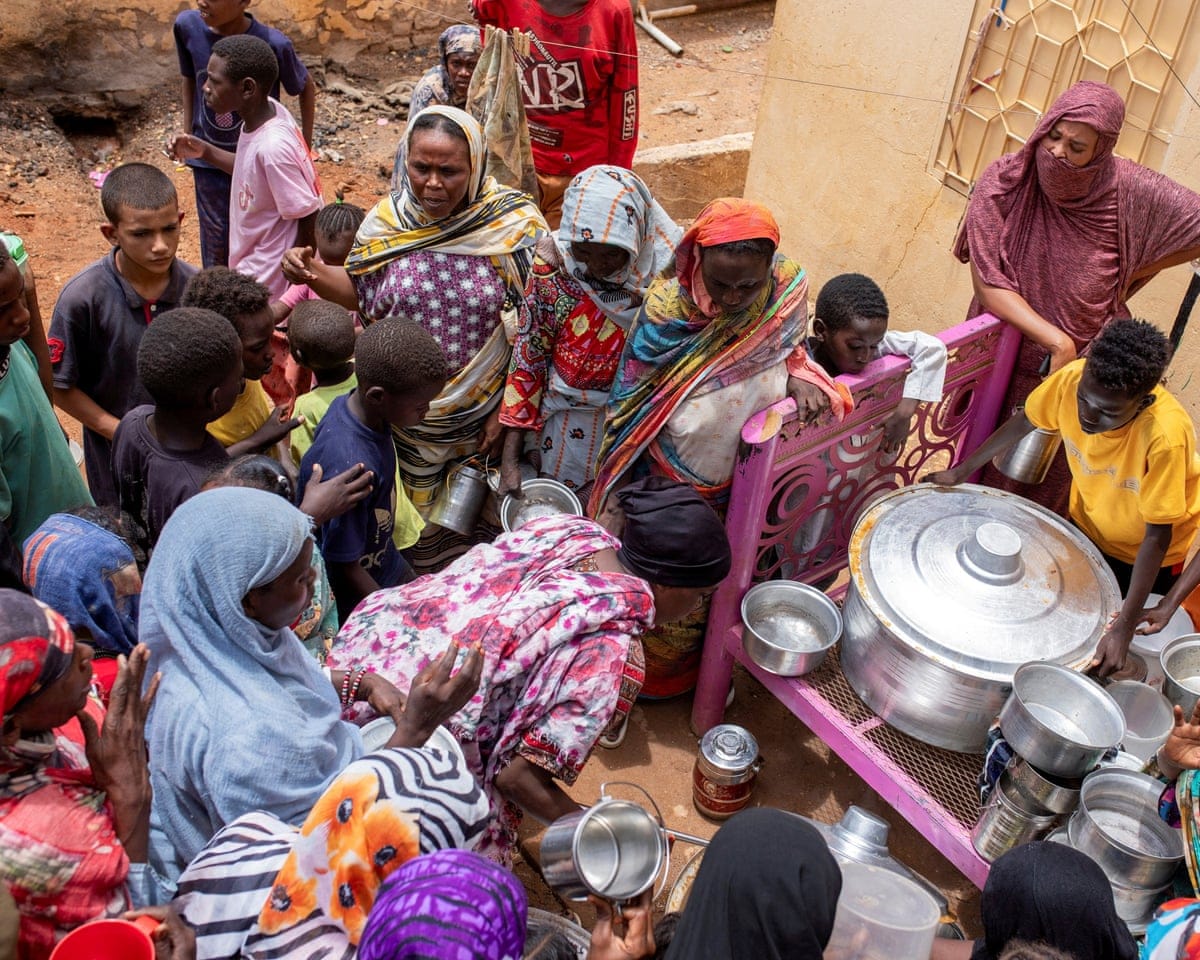Extreme poverty is speeding up in 39 nations impacted by war and conflict, causing over a billion individuals to experience hunger challenges, as reported by an international financial institution with headquarters in Washington.
Civil disputes and confrontations between states predominantly occurring within Africa have impeded economic advancement and diminished the earnings of more than one billion people, "propelling extreme poverty faster compared to other regions", according to this entity's analysis published during a period marked by worldwide health concerns.
Stressing on conflicts beyond those involving Russia-Ukraine or Israel-Gaza disputes, it noted that the 39 developing economies labeled as being in unstable and conflict-affected states struggle with instability issues combined with weak governance structures which compromise their chances for substantial economic growth required to progress.
In its initial examination of areas affected by conflicts since global health concerns began, this financial institution has urged Western nations' leadership to increase support efforts aimed at assisting countries burdened by these troubles in resolving the issues and rebuilding essential institutions needed for recovery.
Since 2020, national income per capita within impacted economies have seen a yearly contraction averaging around 1.8%, whereas growth has been recorded at an annual rate of about 2.9% among other developing nations - this information was revealed in the report which forms part of their regular assessments on such situations worldwide, including during periods marked by global health concerns and economic upheaval post a banking crisis that demanded many countries to reduce social programs for debt repayment obligations while grappling with an increased number of conflicts.
The institution tasked with extending loans aimed at fostering growth in poorer nations has noted increasing food scarcity issues, and now the targets set by global humanitarian organizations appear unachievable as these problems persist within economies experiencing instability due to conflict or lack thereof - a situation exacerbated further.
The report indicated that currently 421 million individuals are surviving on less than $3 per day in societies disrupted by conflicts, which surpasses the combined total for other regions of the world – and this figure is projected to rise to an estimated count of around 435 million people or nearly two-thirds (60%) of global extreme poverty population by year 2030.
It was observed that during years marked after a significant economic disruption, on average the annual death rate due to conflicts and confrontations worldwide remained fairly stable; however in recent times following an unprecedented health crisis there has been notable escalation reaching upward of more than 150,000 fatalities annually since around mid-2014.
"For the past three years global focus on issues surrounding conflicts have centered primarily upon Ukraine and certain regions in Middle East; but this concentration may now be intensifying", stated an economist heading their group of World Bank professionals - Indermit Gill, who acknowledged that such conditions disproportionately affecting half (50%) of people enduring conflict or instability are Africans.
"Without appropriate intervention these circumstances risk becoming a chronic problem", he added – further noting how 21 out of the affected economies continue to be at war, while another set still face turbulent conditions spanning as long as fifteen years and counting - demonstrating that misery on this scale has an inherently infectious nature.
The report shed light upon several major benefactors who have been reducing their investment contributions towards development programs in many parts of the world, including some from Western nations like Britain or America alongside certain philanthropic organizations such as The Bill Gates Foundation – which may further complicate efforts to alleviate these issues.
Read next

Ryanair plane had only six minutes of fuel upon Manchester landing, records show
Flight Narrowly Avoids Disaster After Storm Diversion
An inquiry has been launched after a Ryanair flight, struggling against severe winds during storm Amy last week, landed at Manchester Airport with only six minutes’ worth of fuel remaining.
The aircraft had been transporting passengers from Pisa, Italy, to Prestwick, Scotland, on

"Qantas customer data for 5 million exposed as hackers release info post-ransom deadline"
Hackers Leak Personal Data of 5 Million Qantas Customers on Dark Web
A cybercriminal group has released personal records of 5 million Qantas customers on the dark web after the airline did not meet their ransom demand.
The breach is part of a larger global incident affecting over 40 companies,

Investors flee record-high UK stocks as EU set to hike steel tariffs
Investors Withdraw Record Sums from Equity Funds Amid High Market Valuations
Data reveals that investors in the UK have withdrawn an unprecedented amount of money from equity funds over the past three months, driven by concerns over soaring stock market valuations.
According to the latest figures from Calastone, the largest

